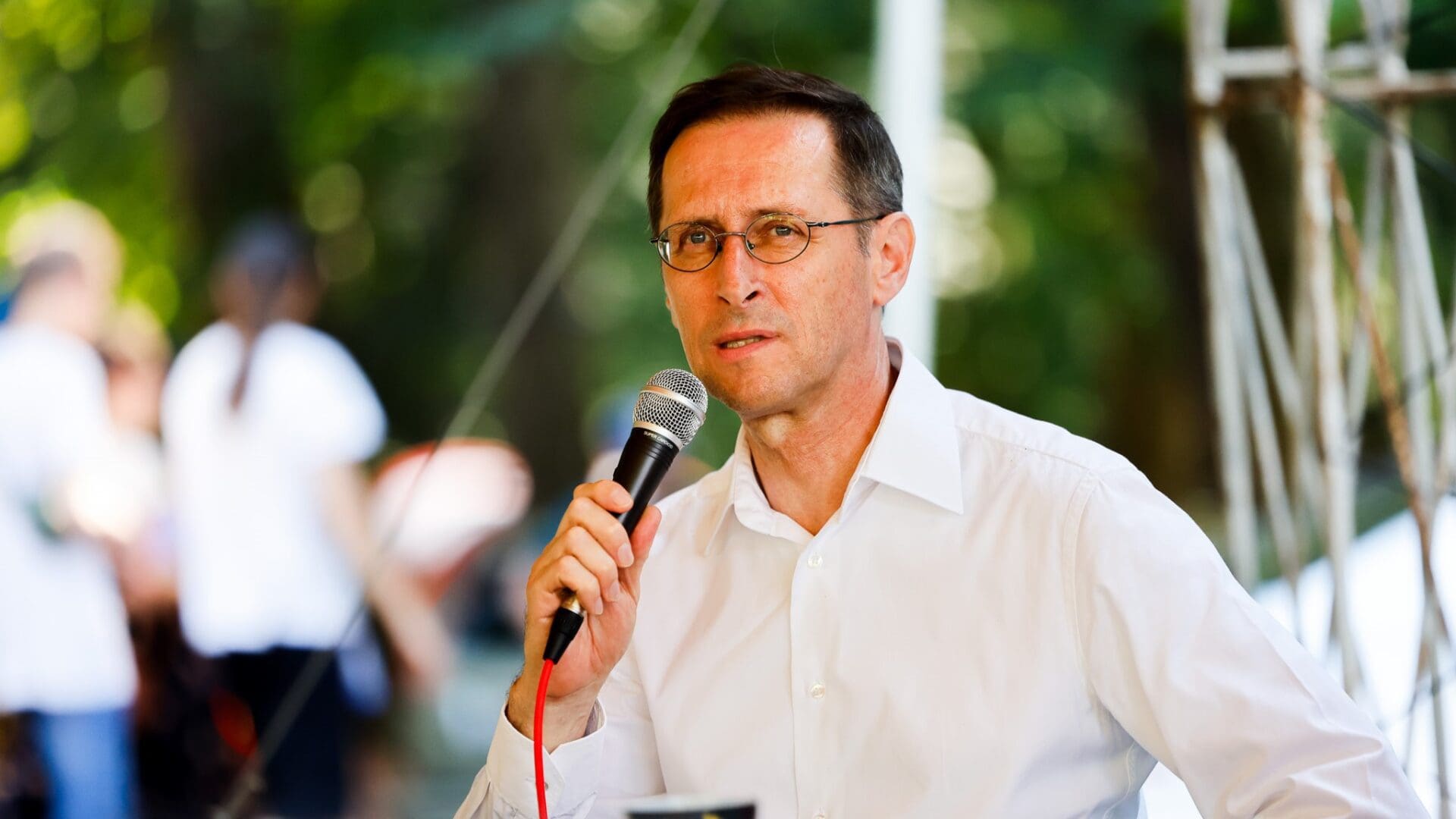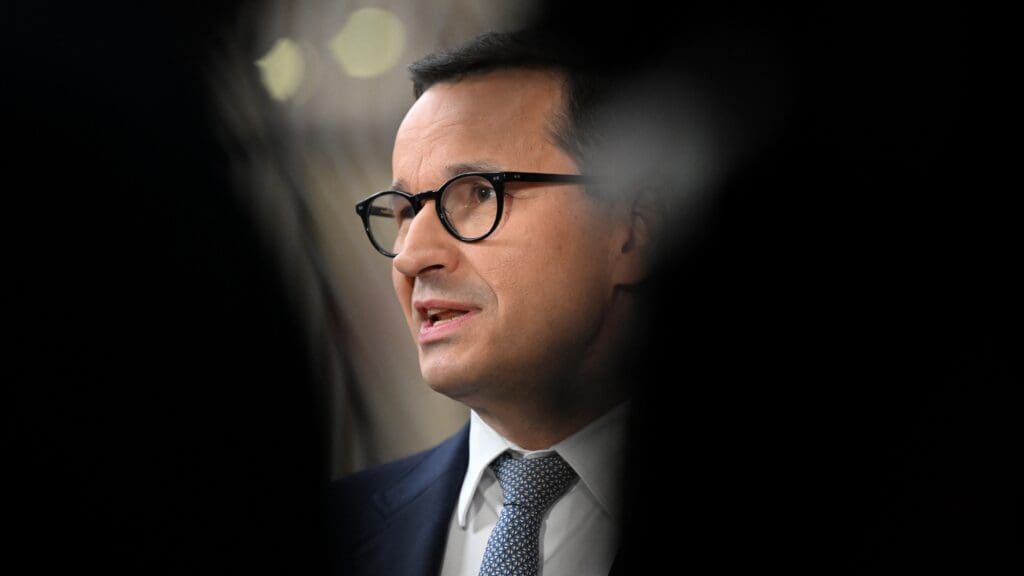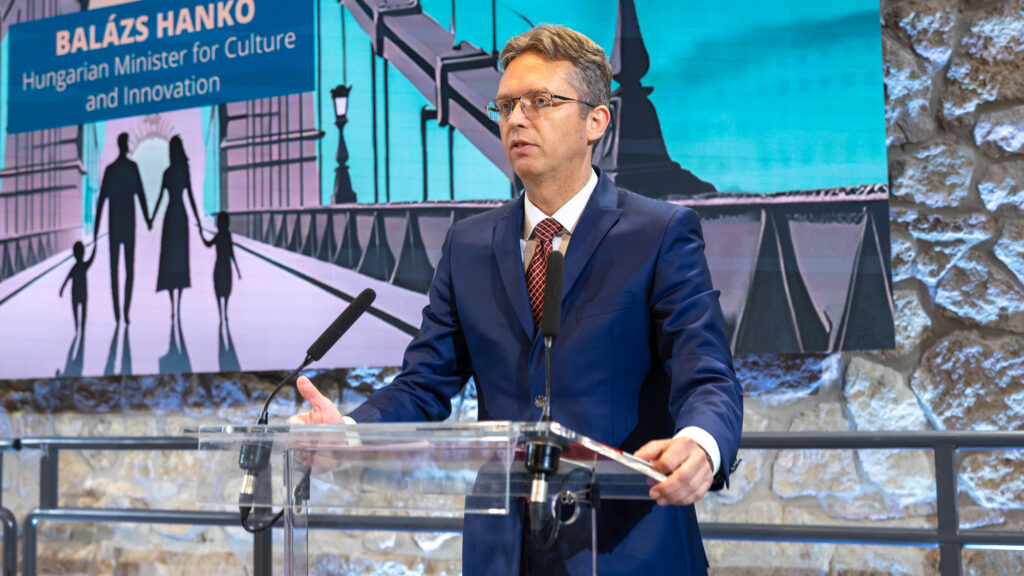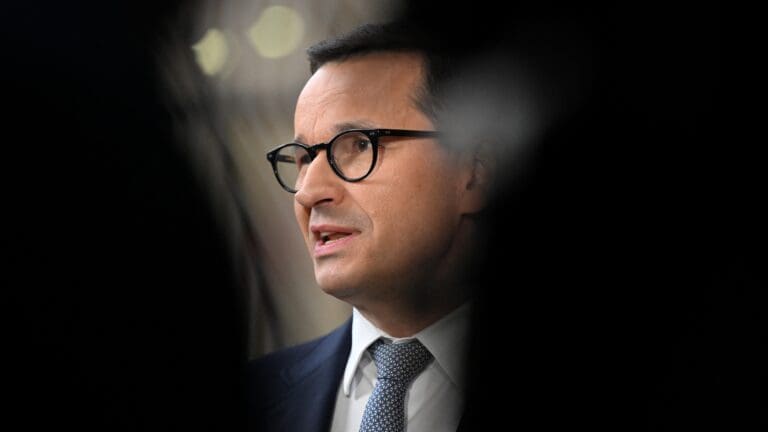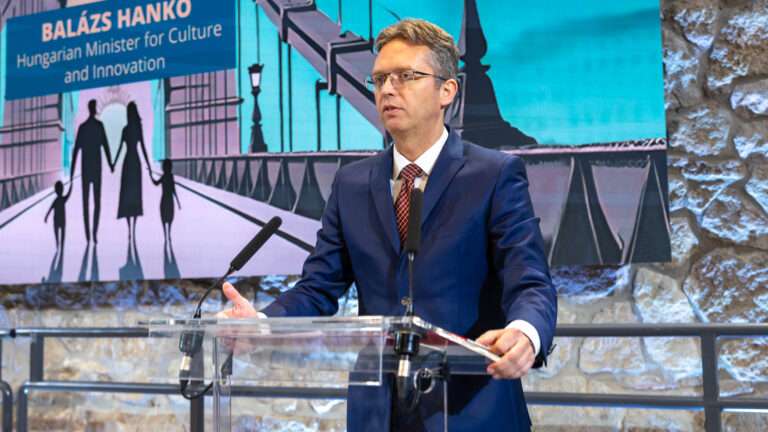The outlook for the Hungarian economy is positive, with strong growth expected next year, overcoming two crises, Minister of Finance Mihály Varga stated during at the Gombaszög (Gombasek) Summer Camp in Southern Slovakia.
At the panel discussion titled ‘Are Hard Times Coming?’, the Hungarian Minister of Finance engaged in a conversation with his Slovak counterpart, acting Slovak Minister of Finance Mihály Horváth. The two policymakers discussed the economic uncertainties resulting from the post-pandemic period and the energy crisis, as well as the economic prospects of their respective countries.
Regarding the outlook for the Hungarian economy, the Hungarian finance minister stated that it is good news that growth is expected in the coming year. However, he also mentioned that the prospects for the European Union as a whole are not very promising. As opposed to the continuing shrinking of the EU economy as a whole, Hungarian economic growth will not stop, mainly because it is based on multiple sectors. The minister reminded that there was a GDP growth of 7.1 per cent in Hungary 2021, right after the pandemic, and a 4.6 per cent expansion was registered last year, which surpassed the EU average.
Although he acknowledged that this year will not be easy, remarking that the country may just avoid recession in the best case scenario, he expressed his conviction that a 4 per cent economic growth would be achievable in 2024. In terms of employment, the minister emphasised that the labour market is ‘very tight,’ with an unemployment rate of around four per cent. Those who want to work can find employment without difficulty, he said, adding that Hungary is building a work-based economy rather than one founded on basic income or social assistance.
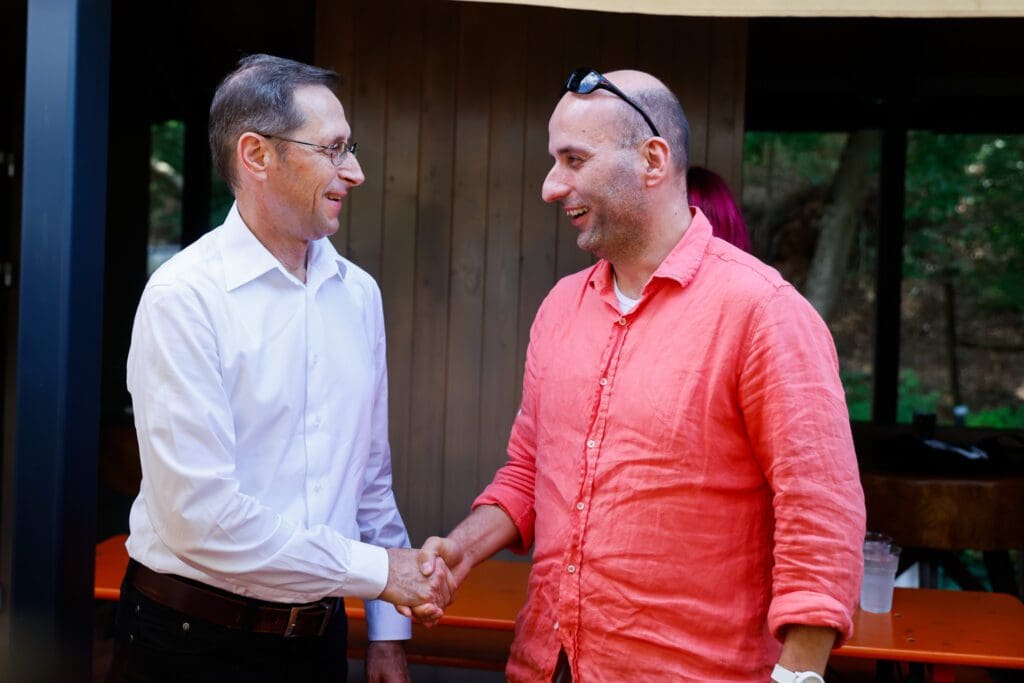
The politician noted that Hungary also has a high investment rate,
accounting for 28 per cent of the GDP, the highest figure in the European Union.
Varga also considered it good news that there are high levels of foreign investments in Hungary. He explained that in the past three years, the majority of capital inflows have come from China and South Korea rather than Western Europe and the United States. He noted that although there is a political debate with Brussels on this issue, rejecting a €6.5 billion investment that creates 8,000 jobs would be ‘nonsense.’
Enumerating the factors strengthening the positive outlook for the economy, he stated that the country’s export performance is very good, and in terms of population, Hungary ranks 94th among the countries of the world, while it stands at 34th place in terms of export indicators. He pointed out that although energy prices shot up last year, the tend seems to be reversing and simultaneously, inflation and interest rates have started to decrease. He added that the Hungarian parliament has already approved next year’s budget, which commits to reducing the budget deficit and the level of national debt.
Horváth mentioned that Slovakia performs rather badly regarding the utilisation of EU funds. Because of the slow and ineffective process, these funds usually reach the economy in the second half of the budgetary cycle. This is likely to happen this year as well, which is expected to result in an improvement of economic indicators this year.
The Gombaszög Summer Camp is the oldest summer event for Hungarian youth in Slovakia, and this year’s edition lasted from Tuesday, 11 July to this past Sunday. The camp is held every year in the Gombaszög (Gombasek) Valley near the village of Szalóc (Slavec) in Gömör (Gemer) County, Slovakia.
Related articles:
Source: MTI

